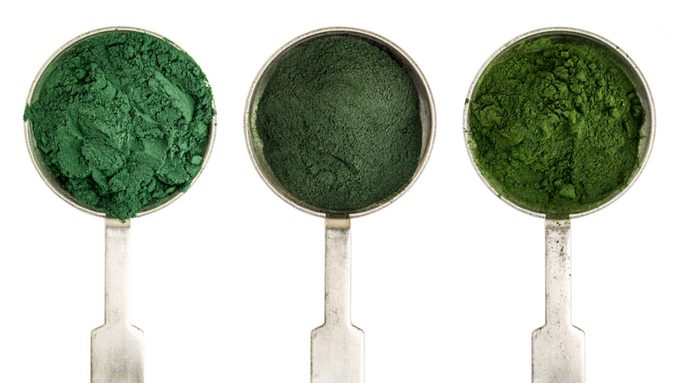Better Skin? Better Digestion? Are The Benefits Of Phytoplankton Legit?
You may have heard about some benefits of phytoplankton. We dig a bit deeper to see what the research says about these claims.

Should you take phytoplankton powder?
When I first heard about the health benefits of phytoplankton and phytoplankton supplements, it didn’t shock me.
Supplements come from a variety of sources. (Did you know some vitamin D pills are made from lamb’s wool?). And the claims all run the gamut. (Younger skin, longer life, anyone?). So, of course, phytoplankton is a supplement, I thought to myself.
But I hadn’t read or heard a lot about the health benefits of phytoplankton. The reason? There’s actually not a lot of published scientific evidence behind it.
Most of the recent studies that I’ve read are more about the environmental impact and the declining population of these tiny marine plants. They play a huge part in our world, especially since they’re the first link in the food chain.
Without these microscopic ocean plants, we obviously wouldn’t have fish to eat and surprisingly we’d have a lot less air to breathe. Phytoplankton is responsible for creating 50 per cent of the oxygen we breathe. Trees are responsible for the other half. And the beauty industry has been using phytoplankton in skin creams as an active ingredient for a while now.
The health benefits of phytoplankton
I couldn’t find third-party nutritional information on phytoplankton.
However, Wendy McCallum, a registered holistic nutrition consultant, a natural nutrition clinical practitioner and spokesperson for Karen Phytoplankton, says the supplement is “a source of omega fatty acids, and also contains vitamins A, C, D and K, beta carotene, dietary fibre, antioxidants, calcium, magnesium, selenium, iron and protein.”
The benefits are aligned with the already known benefits of these nutrients. “Anecdotal evidence suggests a broad range of people benefit […], from athletes to those with chronic inflammation or pain, digestive issues, skin issues, and migraines to us plain old exhausted moms,” says McCallum.
McCallum suggests that it’s the combination of fatty acids along with the other nutrients and phytochemicals we tend to lack is that it’s in one supplement or pill – rather than taking them individually. All you do is add the green powder to your smoothie or take it in capsule form.
Should you take phytoplankton?
As a health journalist, I’d love to see more scientific evidence on the benefits of phytoplankton. Karen Phytoplankton’s site shows that they are undergoing a clinical trial to confirm whether or not it may help with irritable bowel syndrome. As for the rest of the possible claims – it has yet to be proven.




